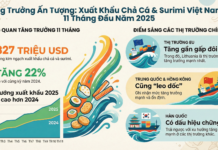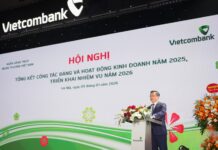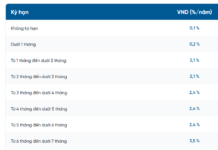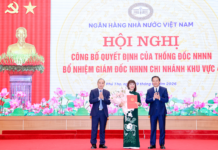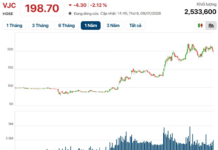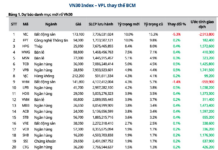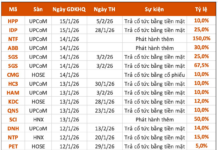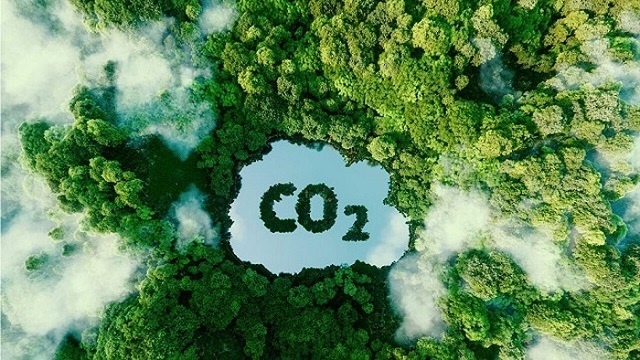
Forest owners can convert the area of forest they manage and protect into CO2 absorption rates, resulting in carbon credits.
|
Forests play a crucial role in the lives of people and the environment by providing wood and fuel, generating oxygen, regulating water flow, serving as a habitat for flora and fauna, preserving rare gene sources, protecting against storms, preventing soil erosion, safeguarding the environment, and ensuring human health and well-being. Forests also hold significant economic value, providing timber resources for construction, raw materials for the manufacturing and processing of forest products, and paper production, thereby creating jobs and generating wealth.
With a focus on sustainable development
Aiming to reduce greenhouse gas emissions, protect the environment, ensure sustainable livelihoods for its citizens, and promote forest industry development, Vietnam is committed to expanding its forests. Currently, the forest industry is paying close attention to forest carbon credits, which are generated through greenhouse gas emission reduction projects, including preventing deforestation and forest degradation, enhancing reforestation and vegetation restoration efforts, and improving forest management practices. Forest owners can translate the area of forest they manage and protect into CO2 absorption rates, resulting in carbon credits that can be sold in the carbon market through a greenhouse gas emission reduction mechanism. Developing a forest carbon market contributes to achieving the goal of “Planting One Billion Trees in the 2021-2025 Period” and achieving net-zero emissions by 2050, while also encouraging people to abandon harmful forest practices and actively engage in preserving and protecting the forest ecosystem, ensuring sustainable economic development.
Mr. Tran Hieu Minh, Head of the Department of Science, Technology, and International Cooperation at the Department of Forestry, Ministry of Agriculture and Rural Development, shared that after completing the transfer of 10.3 million carbon credits, by March 2024, Vietnam will receive a total of $51.5 million from the World Bank.
“Both international and domestic partners have expressed interest in carbon credit transfers. If we don’t act promptly, we may miss this valuable opportunity, as the value of carbon credits tends to decrease over time, impacting the transaction price,” said Mr. Minh.
According to Mr. Vu Tan Phuong, Director of the Sustainable Forest Management Certification Office at the Vietnam Academy of Forest Sciences, Ministry of Agriculture and Rural Development, the global carbon credit market is experiencing robust growth and has become one of the most dynamic trading sectors. Carbon credit prices vary significantly, ranging from $1–2 per credit to nearly $200 per credit.
Countries like South Korea, China, and Australia have developed their own national standards for carbon credits. Businesses in these countries not only fulfill their emission reduction obligations but also proactively adopt voluntary mechanisms in their production and operations, ensuring transparency to meet the expectations of the international community.
In Vietnam, the Ministry of Agriculture and Rural Development is working diligently to finalize the standards for forest carbon credits, with the goal of establishing a comprehensive legal framework to attract investment and efficiently operate the domestic carbon credit market.
Refining the trading mechanism
Former Vice Minister of Agriculture and Rural Development, Chairman of the Agricultural Economics Science Association, Ha Cong Tuan, emphasized the importance of understanding that forest carbon credit trading currently encompasses both international cooperation and voluntary credit sales, and it is not yet a mandatory market.
Vietnam lacks an official operating mechanism for the carbon credit market. According to Decree 06/2022/ND-CP on greenhouse gas emission reduction and ozone layer protection, the carbon credit market is expected to be established by 2028.
“In the absence of a formal market, I believe we should allow for pilot projects and the sale of carbon credits in the international market,” suggested Mr. Tuan.
Mr. Nguyen Dinh Tho, Director of the Institute of Strategy and Policy on Natural Resources and Environment, Ministry of Natural Resources and Environment, acknowledged Vietnam’s successes in mobilizing finance for emission reduction, particularly in the agricultural sector.
After nearly a decade of preparation, Vietnam successfully sold carbon credits, generating $51.5 million. The country is now gearing up for larger projects, such as the one-million-hectare rice project linked to carbon credits.
However, Mr. Tho noted that the government is cautious about carbon credit trading. “In international workshops on this topic, we have discussed connecting the two markets: the voluntary market and the compliance market. The compliance market arises from the commitments made by countries under the United Nations Framework Convention on Climate Change. The voluntary carbon market, on the other hand, involves the voluntary issuance, purchase, and sale of carbon credits between organizations, companies, or countries. Early movers like South Korea connected these two markets long ago, while Vietnam has been more hesitant.”
Carbon credits in the voluntary market tend to have lower prices. Therefore, connecting the compliance and voluntary markets is crucial. If Vietnam’s carbon credits gain recognition in the compliance market, it could incentivize farmers to produce more sustainably, increase their income, and gradually transition towards a more sustainable agricultural model,” Mr. Tho explained.
Mr. Tho further analyzed that carbon project implementation typically takes 12–18 months for the baseline, followed by three years for inventory, and another three to five years before the carbon credits can be sold. If this process is prolonged, Vietnam may struggle to establish a connection between the two markets.
“This is a significant issue, and I urge the relevant ministries to collaborate promptly to turn this vision into reality. At present, we are being overly cautious, and the Ministry of Agriculture and Rural Development needs to act swiftly to seize this opportunity and keep pace with the world,” Mr. Tho emphasized.
KienlongBank: Leading the Way with the Dual Implementation of Basel III and ESG Projects
“With the synchronous implementation of both the Basel III and ESG projects, KienlongBank is demonstrating its strong commitment to enhancing its risk management capabilities and resilience against unforeseen fluctuations. This dual initiative underscores the bank’s proactive approach to not only meet but exceed regulatory standards, solidifying its foundation for sustainable growth.”





